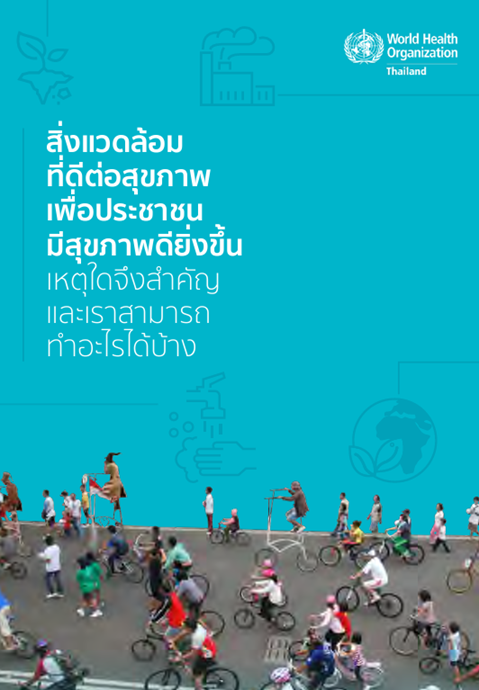สิ่งแวดล้อมที่ดีต่อสุขภาพ เพื่อประชาชนมีสุขภาพดียิ่งขึ้น เหตุใดจึงสำคัญ และเราสามารถ ทำอะไรได้บ้าง

The World Health Organization (WHO) is dedicated to improving the health and well-being of everyone in Thailand. Working hand-in-hand with the Royal Thai Government and a wide range of partners, the WHO's sixth Country Cooperation Strategy (CCS) for 2022-2026 outlines a collaborative approach to achieving this goal.
The CCS represents a shared commitment to improving health in Thailand. Over 60 stakeholders, spanning government agencies, academia, and civil society, are actively collaborating to tackle key health challenges. The WHO serves as a facilitator, leveraging its expertise and influence to drive this broad partnership.
WHO’s work in Thailand is based on the Country Cooperation Strategy (CCS) 2022 - 2026, it describes WHO’s medium-term strategic vision to guide the Organization’s work in Thailand. Most importantly, it describes six priority programmes on which the Ministry of Public Health in Thailand, its numerous partners, and the World Health Organization will work jointly over the next 5 years. These programmes address some of the critical public health issues facing Thailand in its unique context – an upper-middle-income country that has pioneered universal health coverage and that is committed to improving health through knowledge generation, evidenced-based policy, and social/political action. It works to improve systems needed to implement national health policies, strategies and plans, and to achieve national targets under the Sustainable Development Goals.
The CCS outlines six strategic priorities, addressing crucial health challenges in Thailand:
The Mekong Malaria Elimination (MME) programme is an initiative aimed at supporting Greater Mekong Subregion (GMS) countries – Cambodia, Lao People's...
Thailand has made significant progress in cervical cancer control and is on track to achieve the 90-70-90 targets by 2030, particularly through HPV vaccination...
The Mekong Malaria Elimination (MME) programme is an initiative aimed at supporting Greater Mekong Subregion (GMS) countries – Cambodia, Lao People's...
The Mekong Malaria Elimination (MME) programme is an initiative aimed at supporting Greater Mekong Subregion (GMS) countries – Cambodia, Lao People's...

